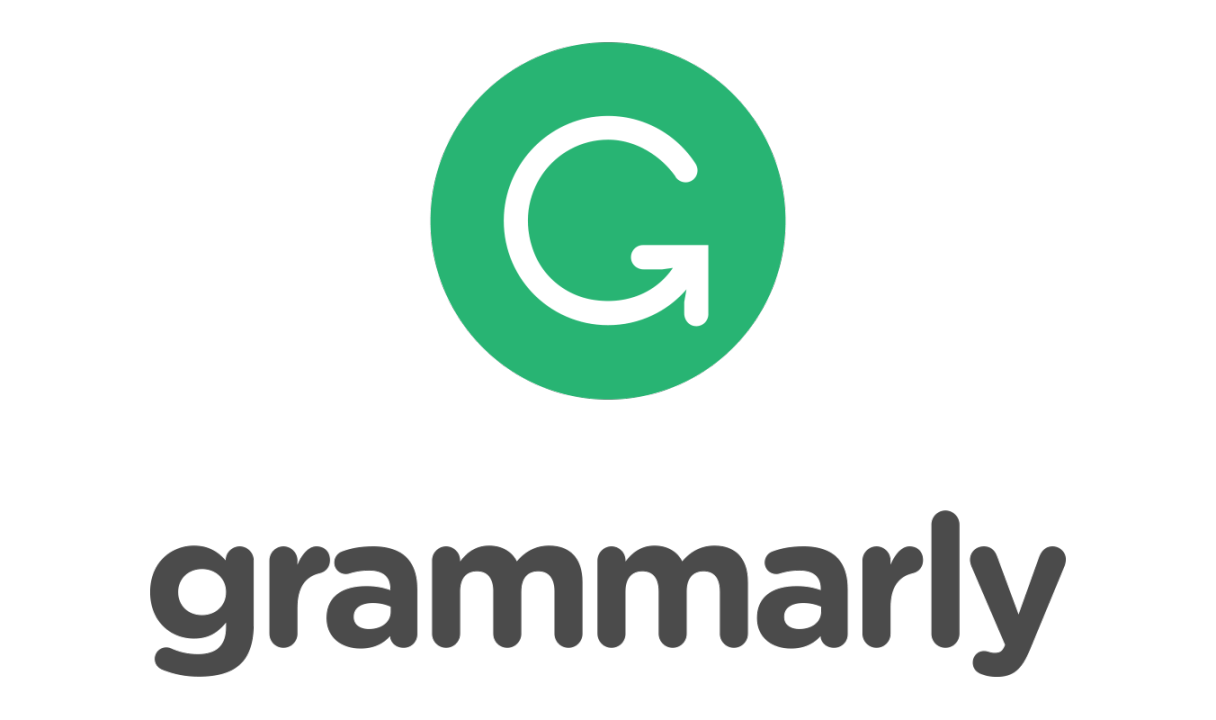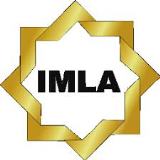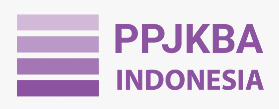Massive Open Online Courses: Management of Facilities and Infrastructure of Arabic Learning in Digital Era
DOI:
https://doi.org/10.22515/athla.v3i1.5143Keywords:
MOOC, facilities and infrastructure management, Arabic learning, digital eraAbstract
Arabic learning still seems traditional and not updated. For this reason, it is necessary to adjust the times in this digital era to the demands and needs of students. This research was conducted to provide an overview of Arabic learning innovations in the digital era of Massive Open Online Courses (MOOC) and to analyze the management of facilities and infrastructure needed to support successful learning. Through a comprehensive research review, this research is intended to present the results of an analysis of the management of facilities and infrastructure in learning Arabic through MOOC in the current digital era. Data collection techniques are carried out by documentation studies or literature searches. The findings are presented systematically which are categorized into four things, namely 1) management of learning facilities and infrastructure, 2) trends in Arabic learning in the digital era, 3) MOOC in Arabic learning, and 4) management of facilities and infrastructure in language learning. Arabic via MOOC. This research contributes to providing concrete descriptions and answers to the demands of the times in the digital era in updating the implementation of Arabic learning.
Downloads
References
Adham, R., & Lundqvist, K. (2015). MOOC As A Method Of Distance Education In The Arab World – A Review Paper. European Journal of Open, Distance and e-Learning, 18(1), 124-138. DOI: https://doi.org/10.1515/eurodl-2015-0009.
Albelbisi, N. A., & Yusop, F. D. (2019). Factors influencing learners’ self-regulated learning skills in a massive open online courses (MOOC) Environment. The Turkish Online Journal of Distance Education. 20(3), 1-16.
Al-Zou’bi, D., & Al-Rousan, N. (2018). E-learning in Jordanian institutions-the latest experience (Edraak platform - the MOOC). Conference: International Academic Conference on Teaching, Learning and E-learning at Vienna, Austria. Retrieved from https://www.researchgate.net/publication/323454960.
Audina & Muassomah. (2020). Instagram: Aternatif media dalam pengembangan maharah al-kitabah. Al-Ta’rib Jurnal Ilmiah Program Studi Pendidikan Bahasa Arab, 8(1), 77-90. DOI:10.23971/altarib.v8i1.1986
Badrudin. (2017). Manajemen Pembelajaran Bahasa Arab Berbasis TIK di Madrasah Aliyah Daarul Uluum Majalengka. Manageria: Jurnal Manajemen Pendidikan Islam, 2(1), 155-167. DOI: https://doi.org/10.14421/manageria.2017.21-08.
Bungin, B. (2010). Metodologi Penelitian Kualitatif. Jakarta: PT. Raja Grafindo Persada.
Christensen, C. M. (1997). The Innovator's Dilemma: When New Technologies Cause Great Firms to Fail. Boston, MA: Harvard Business School Press.
Creswell. (1998). Qualitative inquiry: choosing among five traditions. USA: Sage Publications Inc. Dariyadi, M. (2019). Pembelajaran bahasa Arab di era digital 4.0. Prosiding Konferensi Nasional Bahasa Arab, 5. Retrieved from http://prosiding.arab-um.com/index.php/konasbara/article/view/514.
Davis, D. J., Chen, G., Jivet, I., Hauff, C., & Houben, G. (2016). Encouraging metacognition and self-regulation in MOOC through increased learner feedback. CEUR Workshop Proceedings, 1596, 17– 22. Retrieved from http://ceur-ws.org/Vol-1596/paper3.pdf
De Waard, I., Gallagher, M. S., Zelezny-Green, R., Czerniewicz, L., Downes, S., Kukulska-Hulme, A., & Willems, J. (2014). Challenges for conceptualising EU MOOC for vulnerable learner groups. Proceedings of the European MOOC Stakeholder Summit 2014, 33-42.
Dziuban, C., Picciano, A. G., Graham, C. R., & Moskal, P. D. (2016). Conducting research in online and blended learning environments: New pedagogical frontiers. New York: Routledge, Taylor & Francis Group.
El-Sayad, G., Saad, N., & Thurasamy, R. (2021). How higher education students in Egypt perceived online learning engagement and satisfaction during the COVID 19 pandemic. Journal of Computer in Education, 8(4), 527–550. https://doi.org/10.1007/s40692-021-00191-y.
Haron, H., Yusof, A., Samad, H., Ismail, N., Juanita, A., & Yusof, H. (2019). The platform of MOOC (Massive Open Online Course) on open learning: issues and challenges. International Journal of Modern Education, 1(3), 01-09. DOI: 10.35631/ijmoe.13001.
Hew, K., & Cheung, W. (2014). Students’ and instructors’ use of Massive Open Online Courses (MOOC): motivations and challenges. Educ. Res. Rev, 12, 45–58.
Hood, N., Littlejohn, A., & Milligan, C. (2015). Context counts: How learners’ contexts influence learning in a MOOC. Computers & Education, 91, 83-91.
Kaplan, A. M. & Haenlein, M. (2016). Higher Education and the Digital Revolution: About MOOC, SPOCs, Social Media, and the Cookie Monster. Business Horizons, 59, 441-450. https://doi.org/10.1016/j.bushor.2016.03.008
Kizilcec, R. F., Pérez-Sanagustín, M., & Maldonado, J. J. (2016). Recommending self-regulated learning strategies does not improve performance in a MOOC. Paper presented at Learning scale 2016, Edinburgh. http://dx.doi.org/10.1145/2876034.2893378
Lassoued, Z,. Alhendawi, M,. & Bashitialshaaer, R. (2020). An Exploratory Study of the Obstacles for Achieving Quality in Distance Learning during the COVID-19 Pandemic. Education Sciences, 10, 1-13. doi:10.3390/educsci10090232.
Linur, R., & Mubarak, M. R. (2020). Facebook sebagai alternative media pengembangan maharah kitabah. Jurnal Kajian Pendidikan dan Bahasa Arab, 1(2), 8-18. DOI:10.47435/naskhi.v2i1.154
Lisaniyah, F., & Salamah, U. (2020). Media pembelajaran bahasa Arab berbasis digital 4.0 (Kahoot dan Socrative) pada sekolah dasar. Premiere, 2(2), 13-20. DOI: https://doi.org/10.51675/jp.v2i2.107.
Littlejohn, A., & Milligan, C. (2015). Designing MOOC for professional learners: Tools and patterns to encourage self-regulated learning. eLearning Papers, 42.
Littlejohn, A., Hood, N., Milligan, C., & Mustain, P. (2016). Learning in MOOC: Motivations and self-regulated learning in MOOC. The Internet and Higher Education, 29, 40-48.
Liyanagunawardena, T. R., Adams, A. A., & Williams, S. A. (2013). MOOC: A systematic study of the published literature 2008-2012. The International Review of Research in Open and Distributed Learning, 14(3), 202-227. https://doi.org/10.19173/irrodl.v14i3.1455.
Matin & Fuad, N. (2019). Manajemen Sarana dan Prasarana Pendidikan Konsep dan Aplikasinya. Jakarta: PT Raja Grafindo Persada.
McAuley, A., Stewart, B., Siemens, G., & Cormier, D. (2010). The MOOC model for digital practice. SSHRC Application, Knowledge Synthesis for the Digital Economy.
Moura, V., Correa, J., Neto, J., Souza, C., & Viana, A. (2018). Challenges for using Massive Open Online Courses (MOOC) in Latin America. Conference: IGI Global. DOI:10.4018/978-1-5225-2826-5.ch005.
Mustapha, A., Muhammad, S., & Salahudeen, A. (2016). Massive Open Online Courses: A Success of Cloud Computing in Education. 139-148. Retrieved from https://www.academia.edu/36358169/Massive_Open_Online_Courses_A_Success_of_Cloud_Computing_in_Education.
Mustofa, M. (2020). Analisis penggunaan WhatsApp sebagai media pembelajaran bahasa Arab di era industri 4.0. Arabiyatuna Jurnal Bahasa Arab, 4(2), 333-346. DOI: 10.29240/jba.v4i2.1805.
Muthmainnah & Annas, A. (2020). Pemanfaatan Vlog sebagai media pembelajaran dalam meningkatkan maharah kalam bagi mahasiswa IAIN Kudus. Arabia Jurnal Pendidikan Bahasa Arab, 12(2), 123-138. DOI : 10.21043/arabia.v12i2.8073.
Nhamo, G. (2013). Massive Open Online Courses (MOOC) and Green Economy Transition: Feasibility Assessment for African Higher Education. JHEA/RESA, 11(2), 101-119. Retrieved from https://www.jstor.org/stable/jhigheducafri.11.1-2.101.
Nurbaiti. (2015). Manajemen Sarana dan Prasarana Sekolah. Manajer Pendidikan, 9(4), 536–546, https://ejournal.unib.ac.id/index.php/manajerpendidikan/article/view/1156.
Onah, D. F. O., & Sinclair, J. E. (2017). Assessing self-regulation of learning dimensions in a stand-alone MOOC platform. International Journal of Engineering Pedagogy (iJEP), 7 (2), 4-21.
Palvia, S., Aeron, P., Gupta, P., Mahaprata, D., Parida, R., Rosner, R., & Sindhi, S. (2018). Online education: Worldwide status, challenges, trends, and implications. Journal of Global Information Technology Management, 21(4), 233-241. https://doi.org/10.1080/1097198X.2018.1542262.
Rahmasari, H. (2020). Penggunaan media YouTube sebagai solusi media pembelajaran bahasa Arab di masa pandemi. Maharaat: Jurnal Pendidikan Bahasa Arab, 3(2), 23-41. DOI: https://doi.org/10.18196/mht.v3i1.11362.
Ramadhan, R. (2020). Aplikasi Tiktok sebagai media pembelajaran bahasa Arab baru di zaman digital. Multaqa Nasional Bahasa Arab Universitas Al Azhar Indonesia (Munasba III). Retrieved from https://www.academia.edu/44759458/Aplikasi_Tiktok_sebagai_media_pembelajaran_bahasa_Arab_baru_di_zaman_digital.
Sallam, M. H. (2017). A Review of MOOC in the Arab world. Creative Education, 8, 564-573. https://doi.org/10.4236/ce.2017.84044.
Silvana, H., & Fajar, Y. (2017). User analysis of Massive Open Online Courses (MOOC) based e-learning system to ensure equal access to education at Higher Education. Edutech, 15(2), 170-187. https://doi.org/10.17509/edutech.v15i2.4067.
Sumarsono. (2021). Peran Massive Open Online Courses dalam Pendidikan Agama Islam di era digital. Ta’dibuna Jurnal Pendidikan Islam, 10(1), 28-44. DOI: 10.32832/tadibuna.v10i1.3451.
Tamaji, S. (2021). Manajemen sarana dan prasarana dalam pembelajaran bahasa Arab di SMP al-Izzah Internasional Islamic Boarding School Batu. Al-Fakkaar: Jurnal Ilmiah Pendidikan Bahasa Arab, 2(1), 22-39. http://e-jurnal.unisda.ac.id/index.php/ALF/article/view/2335.
Thoyyibah, A., & Firdaus, M. (2021). Implikasi Manajemen Sarana dan Prasarana Terhadap Pembelajaran Bahasa Arab (Studi Kasus Lab. Bahasa Arab FAI-UMM). Studi Arab. 12(1), 37-52, https://doi.org/10.35891/sa.v12i1.2722.
Umam, M., & Nada, R. (2021). The complexity of Arabic learning during the Covid-19 pandemic at MIN 1 Yogyakarta (problem, curriculum, and parental engangement. Mantiqu Tayr: Journal of Arabic Language, 1(2), 167-182. DOI: 10.25217/mantiqutayr.v1i2.1663.
Williams, C., Terras, M., & Warwick. (2013). What people study when they study Twitter: Classifying Twitter related academic papers. Journal of Documentation, 69(3), 384–410. https://doi.org/10.1108/JD-03-2012-0027.
Downloads
Published
How to Cite
Issue
Section
Citation Check
License
Copyright (c) 2022 ATHLA : Journal of Arabic Teaching, Linguistic and Literature

This work is licensed under a Creative Commons Attribution-ShareAlike 4.0 International License.










